Atsur: Securing African Art Through Blockchain Technology
By registering their works on Atsur, creatives can protect their intellectual property, gain global exposure, and ensure fair compensation for their art.
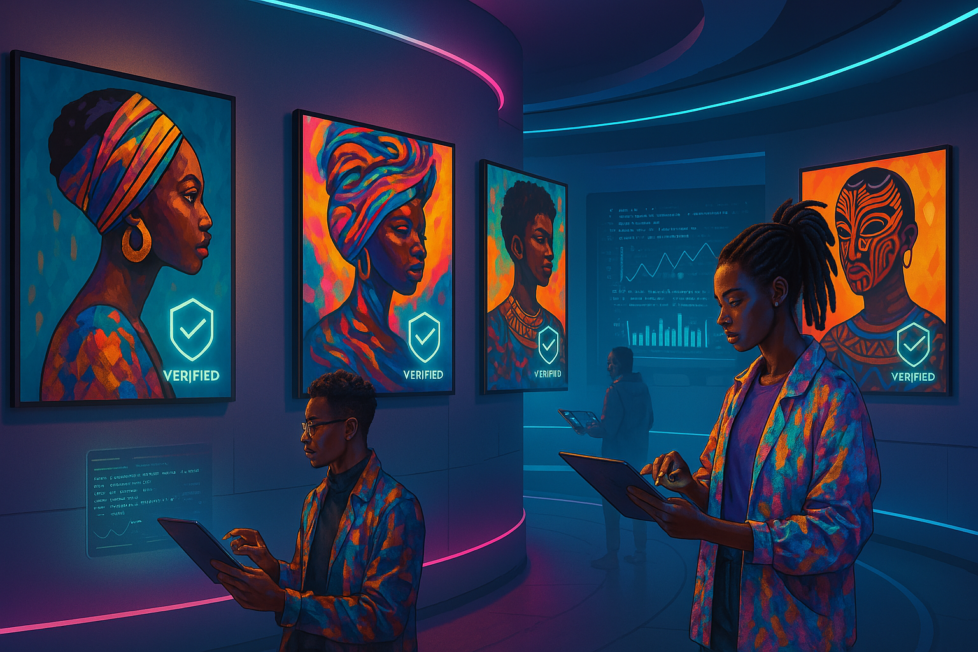
By registering their works on Atsur, creatives can protect their intellectual property, gain global exposure, and ensure fair compensation for their art.

Written by Adaobi Orajiaku and Seun Abdul
Imagine buying a masterpiece, only to discover it’s a fake. Sadly, this happens too often in Africa’s booming art market, where forgery costs artists and collectors millions yearly and, critically, discourages young talent, holding back the next generation of creatives.
For centuries, artists, collectors, and investors have struggled with proving the origin and authenticity of artworks, dealing with fakes, and facing a general lack of transparency. These barriers lower the value of original African art which makes it hard for people to trust the process. If buyers and collectors can’t trust be sure who made the art or where it came from, they’re less likely to acquire it. Meaning, many African artists miss out on the recognition and income they deserve. Without a secure system, the industry risks losing both cultural legacy and global opportunity.
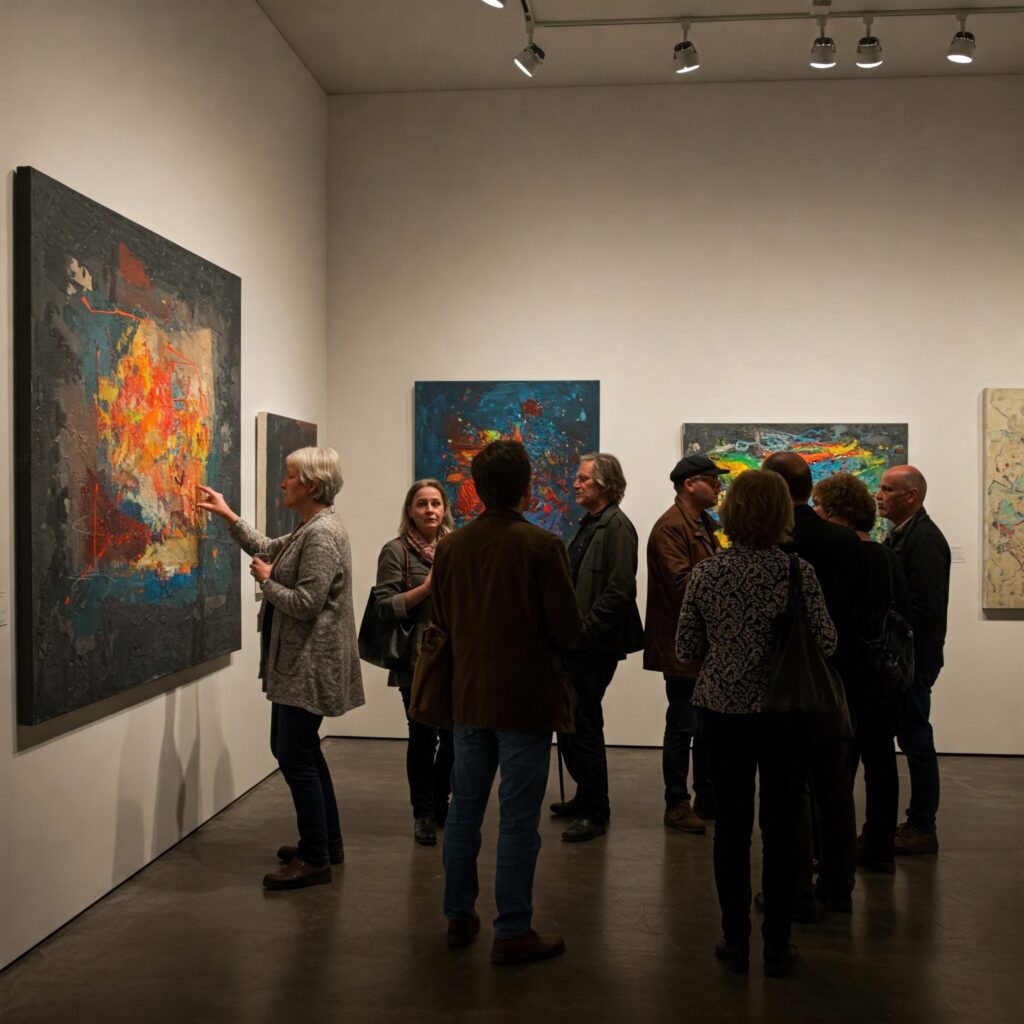
In a digital era where technology is redefining industries, blockchain and artificial intelligence (AI) presents groundbreaking solutions for art authentication. Atsur, an art-tech startup, is leading this transformation, leveraging blockchain to ensure that African artists can protect their work and collectors can buy with confidence.
Forgery is a billion-dollar problem in the global art industry, and Africa is particularly vulnerable. Many collectors struggle to verify the authenticity of artworks, leading to distrust and undervaluation. Without proper documentation, artists also lose control over their work once it changes hands, making it easy for counterfeits to circulate.
Consider the story of Nigerian master Ben Enwonwu, whose famous painting Tutu, often called the “African Mona Lisa”, was thought lost for decades. It resurfaced in a London apartment in 2017, where the owners had no idea they were sitting on a national treasure. When it finally went to auction, it sold for over £1 million. Enwonwu, like many African artists, never benefited from the resale.
With no reliable verification system, such cases are far too common. Buyers hesitate to invest, fearing fake or misattributed works. Without tools to verify, track, and protect their creations, African artists are locked out of a global market that feeds off their genius. This lack of transparency affects the entire ecosystem, making it difficult for them to gain international recognition and fair compensation.
Traditional methods like certificates of authenticity and gallery records are often unreliable and easy to manipulate. Even in developed art markets, forgery remains a problem, as seen in the $80 million scandal that rocked the global art world. The need for a secure, decentralised system that ensures authenticity while preserving the integrity of African art has never been greater.
Atsur addresses this challenge by integrating blockchain technology and AI-powered verification into the African art market.
Blockchain acts like a digital birth certificate for art, permanently recording its origin, history, and ownership. Once an artist or gallery uploads their artwork to Atsur, a unique digital signature is created and stored on the blockchain to prove authenticity. They provide high-quality images or 3D scans, and Atsur verifies the artwork’s authenticity and the creator’s identity.
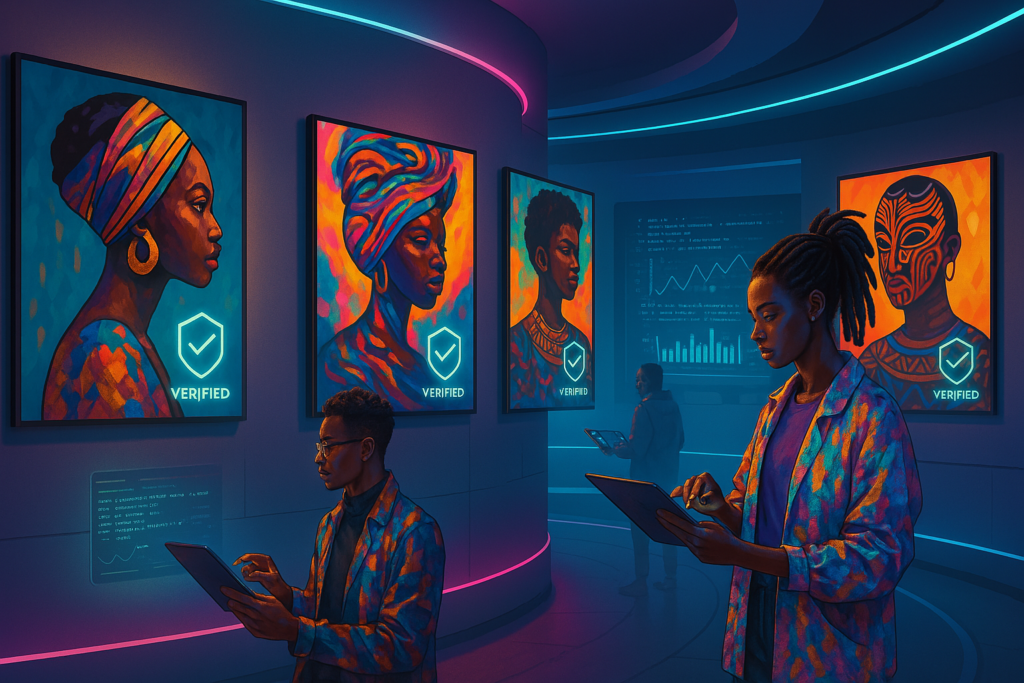
After verification, we issue a certificate of authenticity. The artwork is then “tokenised,” which means turning it into a unique digital asset on the blockchain. This digital token acts as a secure, verifiable record of the artwork’s ownership and allows the artist to set royalties, earning a percentage every time their work is resold. Just as you can’t forge a fingerprint, no one can alter this record, not even Atsur. Every sale, exhibition, or resale gets added to its unbreakable chain of trust.
Tied to this token is a smart contract, an automated system that ensures the artist gets paid every time the work is resold. For example, if a sculpture sells for $50,000 today and $100,000 in five years, the smart contract automatically sends the artist their share of both sales with no middlemen and no extra paperwork. Just fair, direct compensation, exactly as it should be. We do this by tracking all subsequent sales, ensuring that both the artist and the artwork are protected in the digital marketplace. This is a game-changer for African artists who have historically been excluded from the financial benefits of secondary sales.
To further protect the integrity of the artwork, Atsur also uses AI tools that act like digital detectives. These systems analyse brushstrokes, textures, colours, and patterns, it’s like comparing a fingerprint to detect inconsistencies or signs of forgery. This added layer of verification helps ensure that the artwork is not only traceable but also authentic, reinforcing trust across the entire art ecosystem.
Since its launch, Atsur has gained traction among artists, collectors, and galleries. The platform has onboarded a growing network of African artists and is collaborating with industry stakeholders to create a more transparent and accessible art market. Recently, it announced a partnership with Nigeria’s National Art Gallery to archive over 3,000 masterpieces of Nigerian heritage digitally.
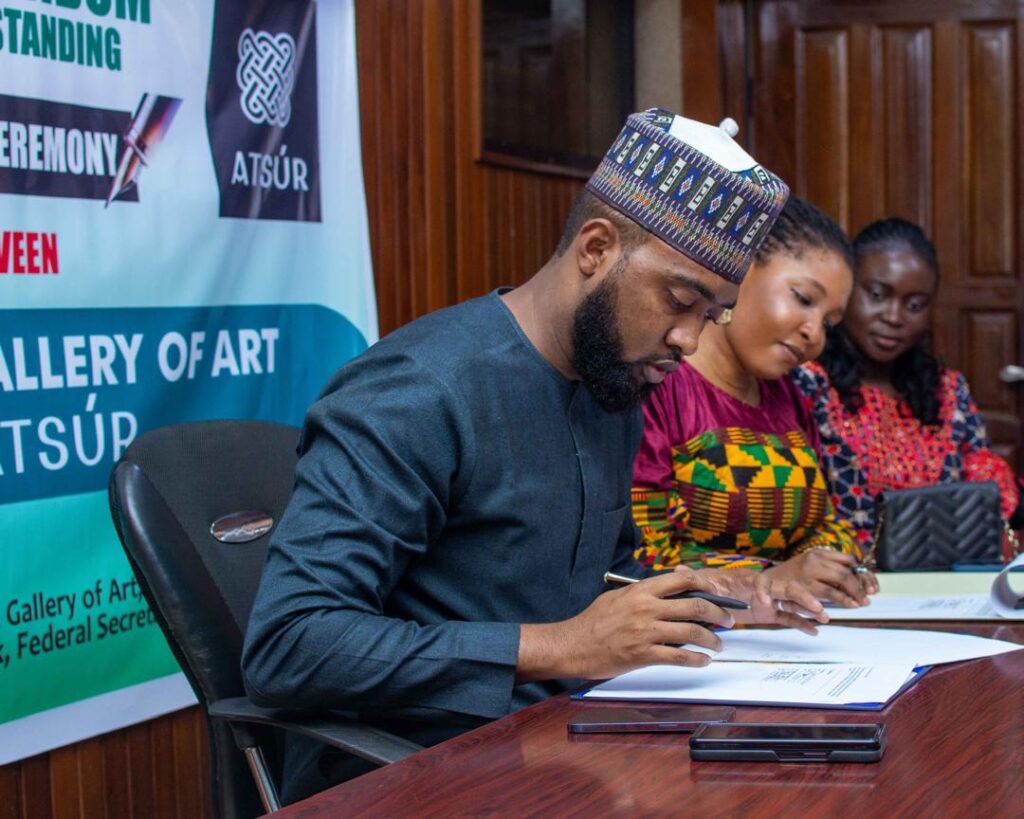
As the pioneer in blockchain-based art verification in the region, it sits at the center of a complex interplay: educating customers on the product’s concepts and benefits, engaging with regulators to ensure compliance, shaping policies in this sector, and addressing skepticism, all while investing in crucial infrastructure and building awareness. By digitising African art records and integrating with international marketplaces, Atsur is elevating the visibility of African artists globally.
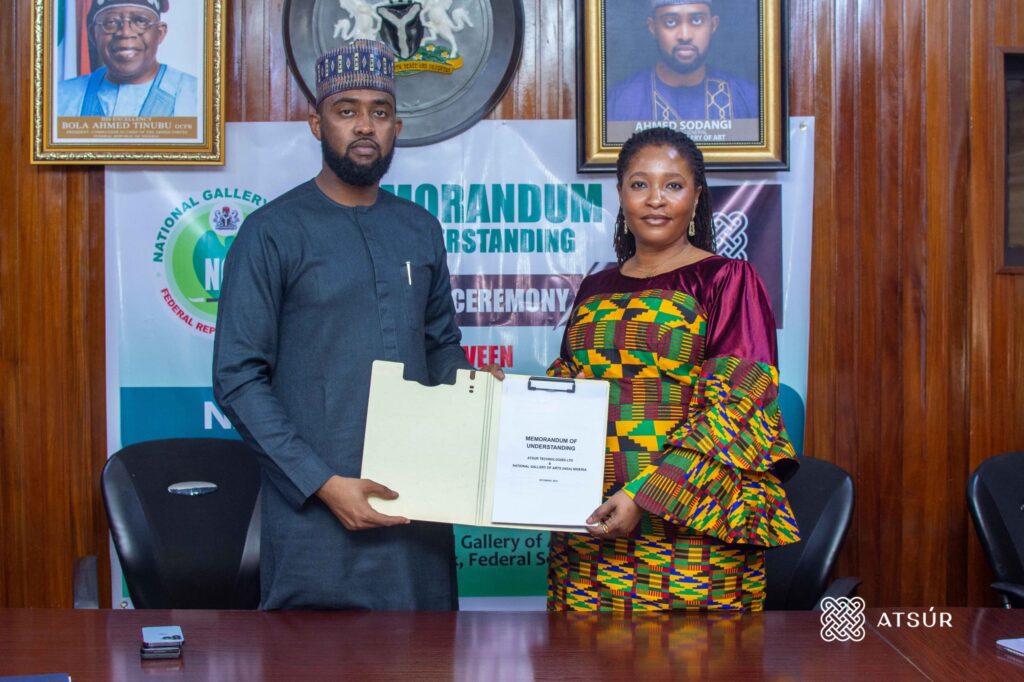
Digital authentication is transforming how African art is valued and exchanged. By leveraging emerging technologies like blockchain and AI, platforms like Atsur are not only protecting Africa’s artistic heritage but also enabling seamless, secure transactions. This shift is helping African art thrive globally, both in visibility and economic value. As Ada, Atsur’s founder, puts it: “Atsur is not just a platform; it’s a movement to safeguard African art’s legacy while empowering artists with financial autonomy.”
Atsur isn’t just for high-profile artists or major collectors; it’s designed to serve every creative in the African art ecosystem. Whether you are an emerging artist looking to certify your work, a gallery seeking to establish history records, or a collector wanting to ensure authenticity before making a purchase, Atsur provides the technology to bridge the trust gap in the African art market.
Here’s how you can start using Atsur:
Atsur welcomes African artists, galleries, and collectors to join the movement toward a more secure and transparent art ecosystem. By registering their works on Atsur, creatives can protect their intellectual property, gain global exposure, and ensure fair compensation for their art. Learn more and get started at Atsur.
***
Adaobi Orajiaku Bio
Adaobi Orajiaku is the CEO and founder of Atsur, an ArtTech startup using blockchain to verify and protect African art. A software engineer and tech consultant with expertise in blockchain technology and quantitative engineering, Ada has contributed to high-impact multinational projects since 2012. She previously served as technical lead at Akara Africa, guiding Web3 developers in building open-source projects that promote African participation in blockchain technology.
Ada is passionate about empowering African artists and preserving their cultural heritage through technology.
Seun Abdul Bio
Seun Abdul is a Media Associate at Nonfictly, specialising in public relations and outreach within Africa’s digital and creative sectors. She helps clients build strong reputations through clear messaging and digital strategy. Seun also supports Atsur in amplifying its presence in the African digital space.
With a Physics degree, Seun uses her problem-solving skills to tell compelling stories. Outside of work, she enjoys action-packed sci-fi, trying new foods, and drawing strength from her faith.
